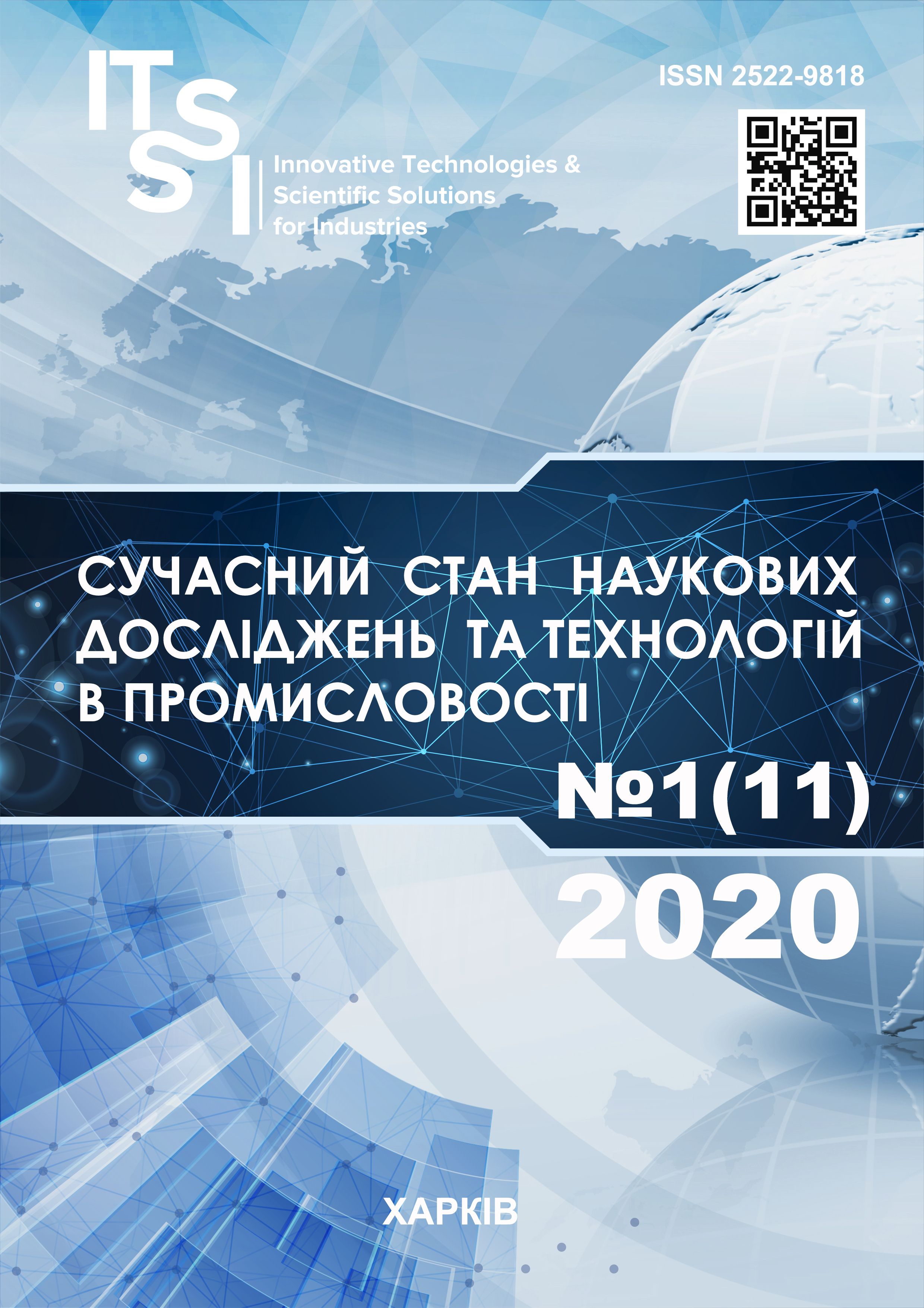HYBRID INFRASTRUCTURE PROJECT MANAGEMENT METHODOLOGIES
DOI:
https://doi.org/10.30837/2522-9818.2020.11.035Keywords:
convergence model, hybrid management methodologies, infrastructure program, basic project management methodology interaction model, program managerAbstract
The subject of this article is the development of hybrid methodologies for managing projects, programs and project portfolios. Significant reductions in the life cycles of infrastructure programs, which contain projects of different lines of activity and different management methodologies, for example, waterfalls with a rigid life cycle and Agile with a flexible methodology life cycle, require the use of convergence tools to form “hybrid” methodologies. The goal is to develop a convergent approach to building hybrid project management methodologies in terms of decision-making processes in project management based on various platforms. Results of the studies were obtained using a convergent approach to building methodologies for managing infrastructure projects and programs. A substantial model of the resulting hybrid methodology for managing infrastructure projects and programs is presented. Conclusions: Hybrid methodologies for managing infrastructure projects and programs are becoming more popular in this category of programs. The main reason is the presence in the program of components with different life cycles, and, consequently, methodologies that require integration and harmonization. The methodology is tested by the practice of using mechanisms of hybrid multilevel management of infrastructure projects and programs. The study of hybrid infrastructural program management methodologies is defined by the practice of introducing different components of programs. The application of the hybrid project management methodology allowed the authors to execute different projects in essence within the stipulated timeframe with the given budget and quality of construction projects and projects of creation of information and communication infrastructure management systems. Further areas of research are related to the elaboration of harmonization, integration, convergence and actualization mechanisms.
References
Bushuyev, S., Verenych, O. (2018), "Organizational Maturity and Project: Program and Portfolio Success", Developing Organizational Maturity for Effective Project Management (Chapter 6: Organizational Maturity and Project: Program and Portfolio Success), Under the head. ed. G. Silvius&G. Karayaz, IGI Global, P. 349 (chapter 6 P. 104–127). ISBN13: 9781522531975 /ISBN10: 1522531971 /EISBN13: 9781522531982. DOI: 10.4018/978-1-5225-3197-5
ISO 21500:2012 (2012), Guidance on project management, Project Committee ISO/PC 236, ISO, 36 p.
The Standard for Program Management – Fourth Edition (2017), Project Management Institute, 2006, 104 p.
Azarov, N. Ya., Yaroshenko, F. A., Bushuev, S. D. (2011), Innovative mechanisms for managing development programs, Kyiv : Summit Book, 564 p.
Lefley, F., Sarkis, J. (2005), "Applying the FAP model to the evaluation of strategic information technology projects", International Journal of Enterprise Information Systems, No. 1, P. 69–90.
Turner, J. (2007), A guide to project-oriented management, Moscow : Dom Grebennikova, 552 p.
Archibald, R. D. (2004), Management of high-tech programs and projects, Moscow : DMK Press, 472 p.
Burkov, V. N., Novikov, D. A. (1997), How to manage projects, Moscow : Sinteg, 188 p.
Bushuyev, S., Verenych, O. (2017), "Competencies as an Instrument for the Blended Mental Space Management of a Project", The 11th International Conference on Project Management (ProMac2017), Munich, Germany, P. 850–859.
Verenych, O., Bushuyev, S. (2018), "Interaction researching mental spaces of movable context, stakeholder and project manager", Organization, Technology and Management in Construction: an International Journal, Vol. 10, Issue 1, P. 1684–1695, DOI: 10.1515/otmcj-2016-0021
Phillips, J. J., Bothell, T. W., Snead, G. L. (2003), The project management scorecards, Amsterdam : Elseiver, 353 p.
Verenych, O., Bushuieva, V. (2017), "The Blended Mental Space as one of the factors for sustainability and success in the project implementation process", International Research Conference, Dortmund, Germany, P. 118–125.
Molokanova, V. M. (2011), "Investigation of synergetic levels of design-oriented management", Project management and production development: Coll. Sciences. Ave., Lugansk : SNU them. Dalia, No. 3, P. 30–37.
Verenych, O., Dorosh, M. (2017), "Blended Mental Space: the methodology for creation and approaches for it’s management", Computer Sciences and Information Technologies (CSIT), Vol. 2, P. 30–37. DOI: 10.1109/STC-CSIT.2017.8099423
Verenich, O. V. (2016), "Management of infrastructure projects and programs as a key element for the development of social and economic systems", Management of the development of folding systems: zb. Sciences prac, Kyiv : KNUBA, No. 25, P. 23–31.
Yaroshenko, Yu. F. (2013), "Organization development in bifurcation", Managing the development of complex systems, Vol. 15, P. 93–97.
Bushuyev, S. D., Bushueva, N. S. (2007), "Proactive management of organizational development programs", Project and program management, Moscow : SOVNET, No. 4 (12), P. 270–282.
Bushueva, N. S. (2007), Models and methods of proactive management of organizational development programs : Monograph, Kyiv : Science. light, 200 p.
Bushuyev, S., Kozyr, B., Zapryvoda, A. (2019), "Nonlinear strategic management of infrastructure programs", Innovative Technologies and Scientific Solutions for Industries, No. 4 (10), P. 14–23. DOI: https://doi.org/10.30837/2522-9818.2019.10.014
Downloads
How to Cite
Issue
Section
License
Copyright (c) 2020 Denis Bushuiev, Boris Kozyr

This work is licensed under a Creative Commons Attribution-NonCommercial-ShareAlike 4.0 International License.
Our journal abides by the Creative Commons copyright rights and permissions for open access journals.
Authors who publish with this journal agree to the following terms:
Authors hold the copyright without restrictions and grant the journal right of first publication with the work simultaneously licensed under a Creative Commons Attribution-NonCommercial-ShareAlike 4.0 International License (CC BY-NC-SA 4.0) that allows others to share the work with an acknowledgment of the work's authorship and initial publication in this journal.
Authors are able to enter into separate, additional contractual arrangements for the non-commercial and non-exclusive distribution of the journal's published version of the work (e.g., post it to an institutional repository or publish it in a book), with an acknowledgment of its initial publication in this journal.
Authors are permitted and encouraged to post their published work online (e.g., in institutional repositories or on their website) as it can lead to productive exchanges, as well as earlier and greater citation of published work.














